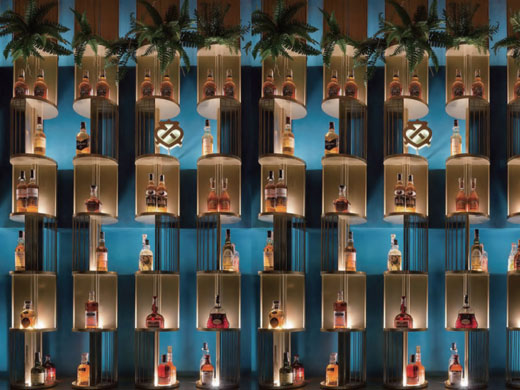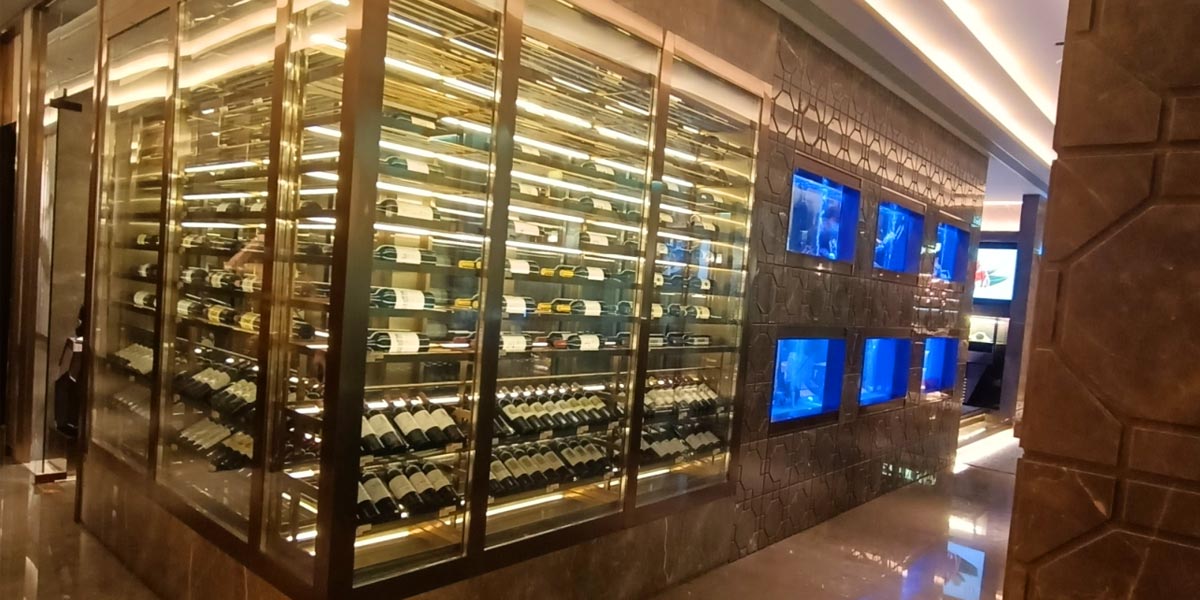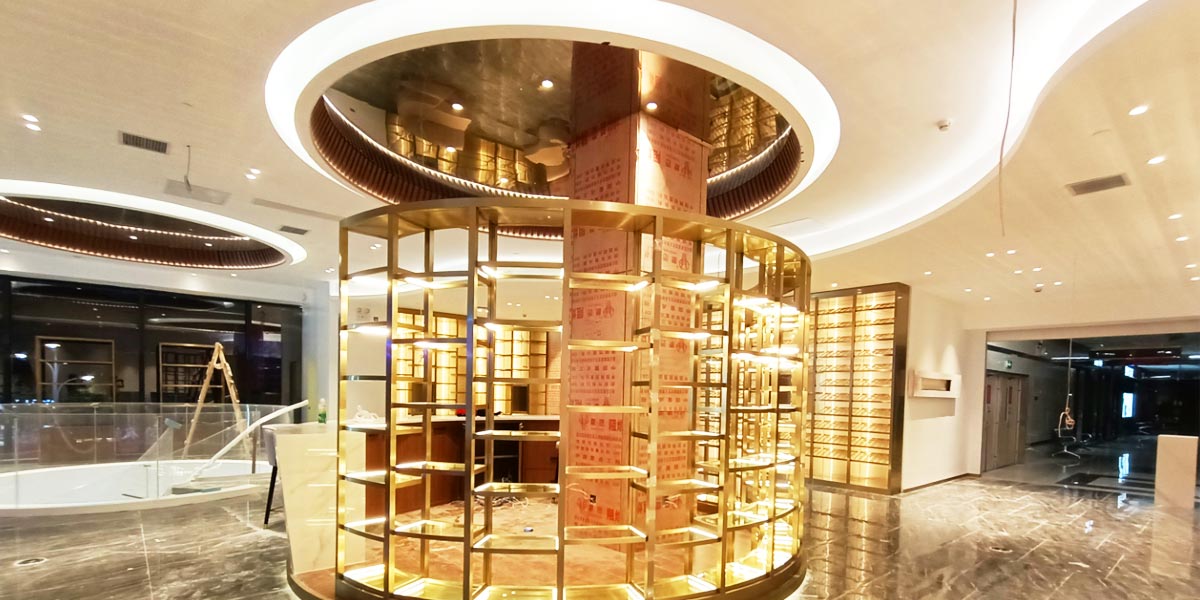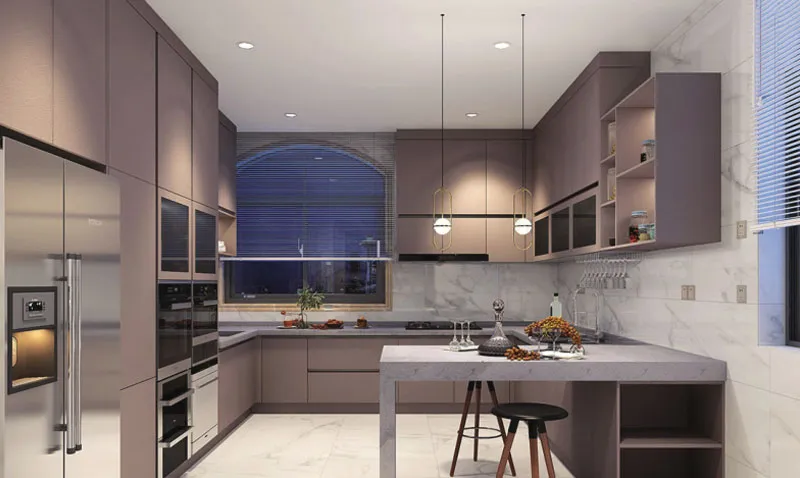How Does a Stainless Steel Wine Cooler Work?
Wine storage is a delicate process that requires precise temperature control, proper humidity levels, and protection from external factors such as light and vibrations. A stainless steel wine cooler is designed to provide an optimal environment for preserving wine quality and enhancing its aging process. This article explores the working mechanism of a stainless steel wine cooler, highlighting its insulation properties, cooling technology, temperature control, humidity regulation, and other essential features.
1. Insulation and Thermal Regulation
One of the fundamental aspects of a stainless steel wine cooler is its insulation and thermal efficiency. Stainless steel is an excellent material for maintaining temperature stability, as it reflects external heat and prevents temperature fluctuations inside the cooler. Most wine coolers incorporate double-walled insulation, which creates a barrier between the external environment and the internal storage space. This insulation helps keep the wine at a consistent temperature, preventing it from being affected by room temperature changes.
Additionally, the stainless steel interior enhances the cooler's durability and provides a hygienic surface that is easy to clean and maintain. The reflective properties of stainless steel also aid in heat dispersion, ensuring an even cooling effect throughout the unit.
2. Cooling Mechanisms
Stainless steel wine coolers typically utilize two primary types of cooling technologies: thermoelectric cooling and compressor-based cooling. Each has its advantages and is suited for different storage needs.
a. Thermoelectric Cooling
Thermoelectric wine coolers operate using the Peltier effect, which generates a temperature difference when an electric current passes through two different materials. This cooling method offers several benefits:
Energy Efficiency: Thermoelectric systems consume less power compared to compressor-based models.
Silent Operation: Since there is no compressor, these coolers run quietly, making them ideal for home use.
No Vibrations: The absence of mechanical components means no vibrations, which helps in preserving wine sediments and preventing disruption of the aging process.
Eco-Friendly: Thermoelectric coolers do not use harmful refrigerants, making them an environmentally friendly choice.
However, thermoelectric cooling is more suitable for small-capacity wine coolers and moderate temperature conditions, as it is less effective in maintaining low temperatures in warm environments.
b. Compressor-Based Cooling
Compressor-based wine coolers function similarly to refrigerators, using refrigerants, condensers, and evaporators to achieve cooling. The key advantages of compressor-based cooling include:
Powerful Cooling: Capable of maintaining lower temperatures even in hot surroundings.
Larger Capacity: Ideal for storing a more extensive collection of wines.
Consistent Temperature Control: Ensures stable cooling across different sections of the cooler.
While compressor-based wine coolers are highly effective, they generate some noise and vibrations due to the moving parts. However, advanced models come with vibration-dampening technology to minimize disturbances.
3. Temperature Control
Precise temperature control is crucial for preserving the flavor and aroma of wine. Stainless steel wine coolers are equipped with digital temperature control panels, allowing users to set and maintain their preferred storage temperature.
Red Wines: Best stored at 55–65°F (13–18°C) to enhance aging and flavor development.
White Wines: Require a slightly cooler range of 45–55°F (7–13°C) to retain freshness.
Sparkling Wines & Champagne: Need even colder storage at 40–50°F (4–10°C) to maintain their effervescence.
Some high-end stainless steel wine coolers offer dual-zone temperature control, enabling users to store different types of wine at their optimal temperatures within the same unit.
4. Humidity Regulation
Wine storage requires adequate humidity levels (typically between 50% and 70%) to prevent corks from drying out, which can lead to oxidation and spoilage. Many stainless steel wine coolers incorporate built-in humidity control features to maintain the necessary moisture levels. These may include:
Water reservoirs to add humidity if the air becomes too dry.
Sealed door gaskets to prevent excessive moisture loss.
Proper humidity control ensures that wine corks remain moist, maintaining an airtight seal that preserves the wine’s integrity.
5. UV Protection
Exposure to ultraviolet (UV) light can degrade wine quality by breaking down its chemical composition. Many stainless steel wine coolers feature UV-resistant glass doors, which block harmful light while still allowing users to view their wine collection. This feature is particularly important for long-term wine storage.
6. Vibration Reduction
Vibrations can disturb the natural aging process of wine by stirring up sediments, affecting its flavor and texture. Premium stainless steel wine coolers come equipped with anti-vibration technology, such as:
Shock-absorbing compressor mounts
Rubber-coated wine racks cabinet to absorb minor movements
These features help maintain the wine’s natural development without disruption.
7. Energy Efficiency
Stainless steel wine coolers are designed to be energy-efficient, incorporating:
Low-power consumption cooling systems
Eco-friendly refrigerants (for compressor-based models)
LED lighting instead of traditional bulbs to minimize heat emission
Many models meet ENERGY STAR standards, ensuring optimal performance with minimal environmental impact.
8. Smart Features and Connectivity
Modern stainless steel wine coolers come equipped with smart features, including:
Wi-Fi connectivity for remote monitoring and temperature adjustments
Touchscreen controls for easy customization
Smart alarms to notify users of temperature fluctuations or open doors
These advanced features enhance convenience and help ensure the best conditions for wine storage.
A stainless steel wine cooler is an essential appliance for wine enthusiasts who value precise temperature control, humidity regulation, and optimal storage conditions. Whether thermoelectric or compressor-based, these coolers provide an excellent environment for preserving the flavor, aroma, and quality of wine. With additional features like UV protection, vibration reduction, and smart controls, stainless steel wine coolers are a stylish and efficient solution for wine storage in homes, restaurants, and wine cellars. Investing in a high-quality stainless steel wine cooler ensures that every bottle is kept at its peak condition, ready to be enjoyed at any moment.
Hot News
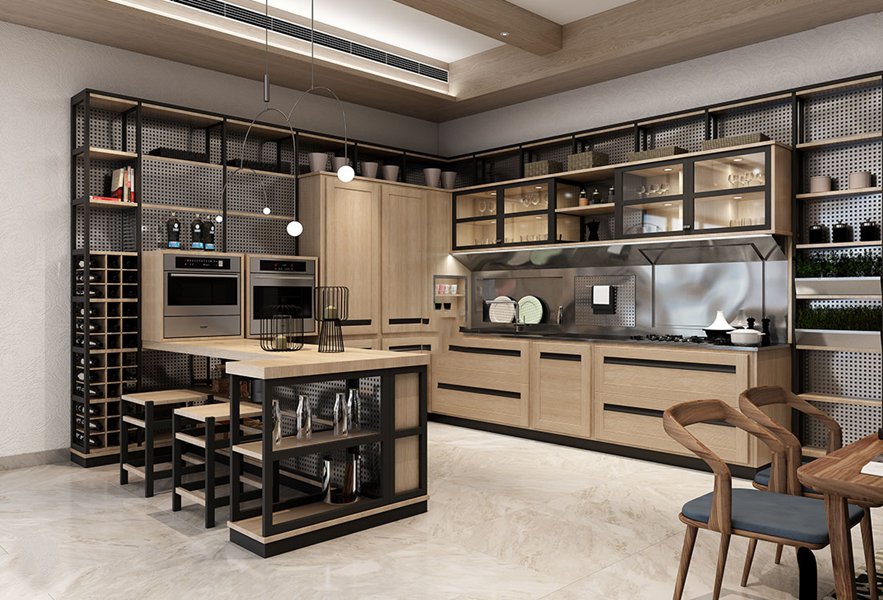
Best Outdoor Stainless Steel Cabinets: Features, Prices, and Buying Tips
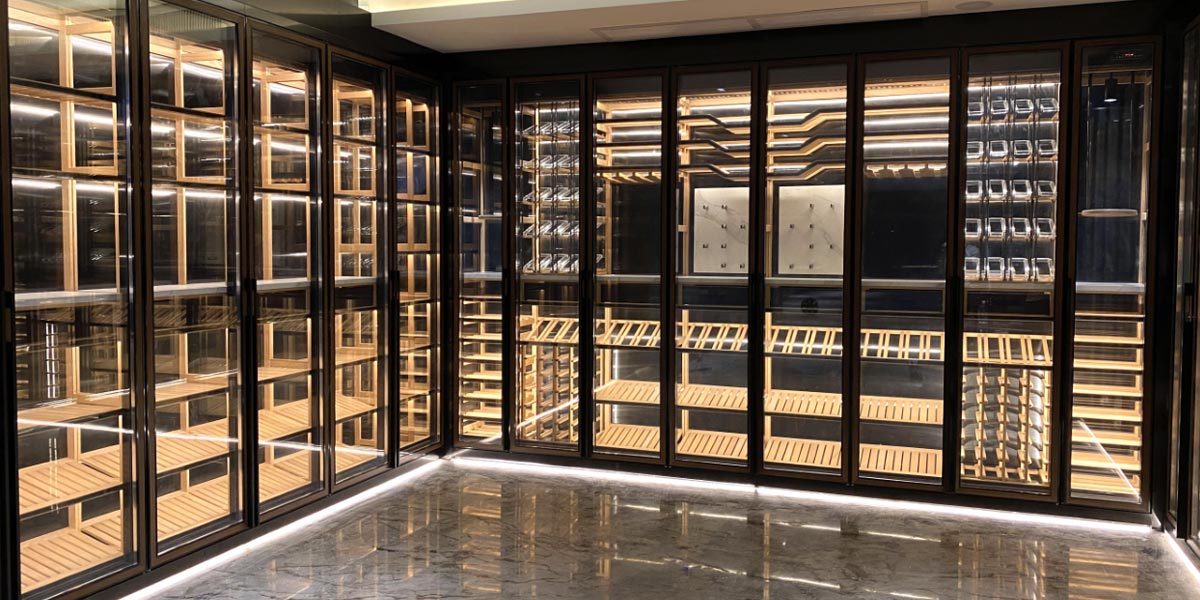
Built-in vs. Freestanding Stainless Steel Wine Cabinets
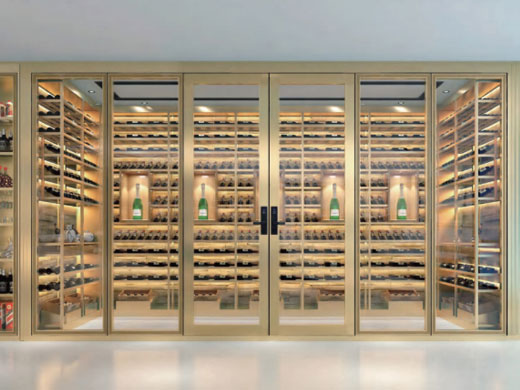
Stainless Steel Wine Cabinet: Ultimate Guide for Modern Wine Storage
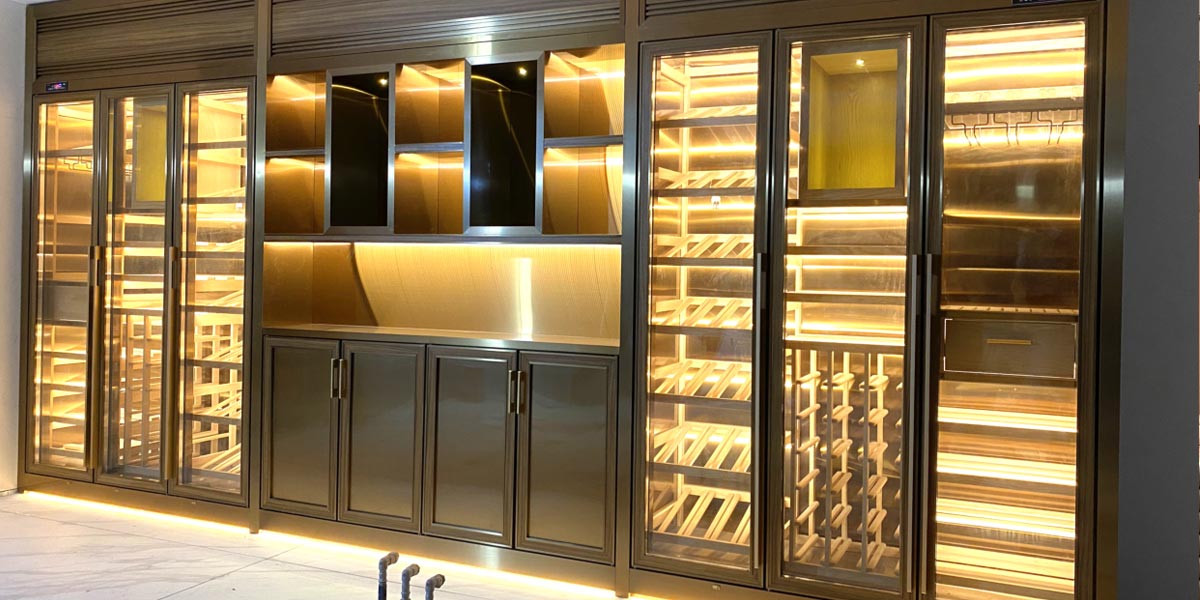
How to Choose the Right Stainless Steel Wine Cabinet: A Complete Buyer’s Guide
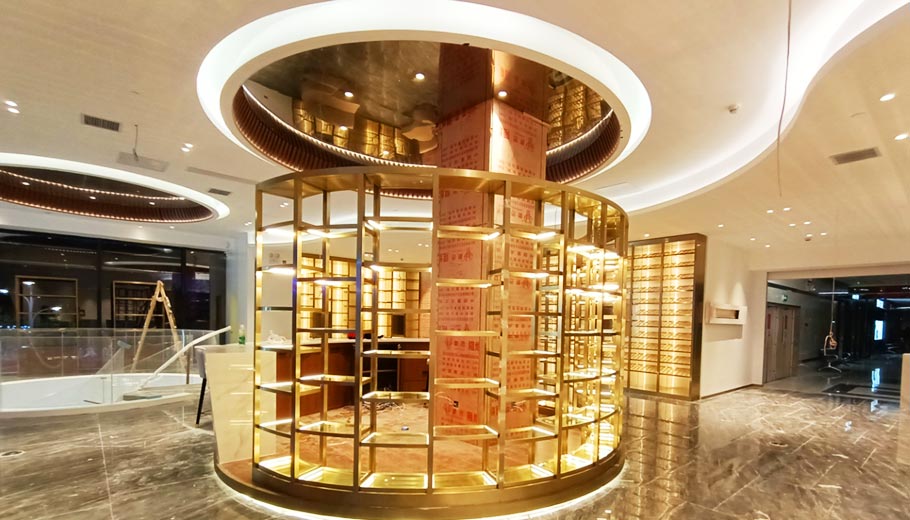
What Size Stainless Steel Wine Cabinet Do You Need?
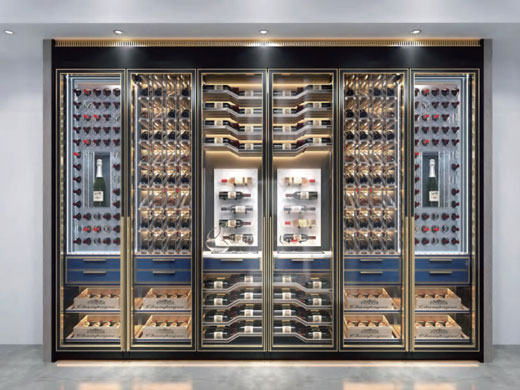
Single-Zone vs. Dual-Zone Stainless Steel Wine Cabinets: Which One Should You Choose?
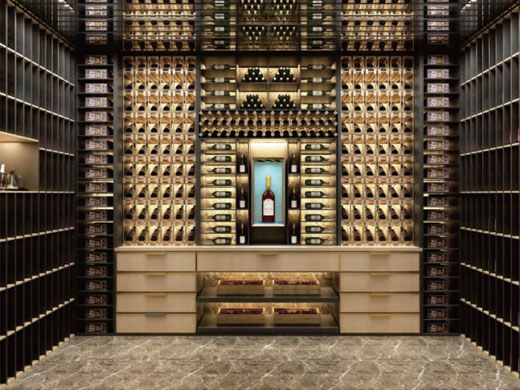
Best Commercial Stainless Steel Wine Cabinets for Bars & Restaurants
